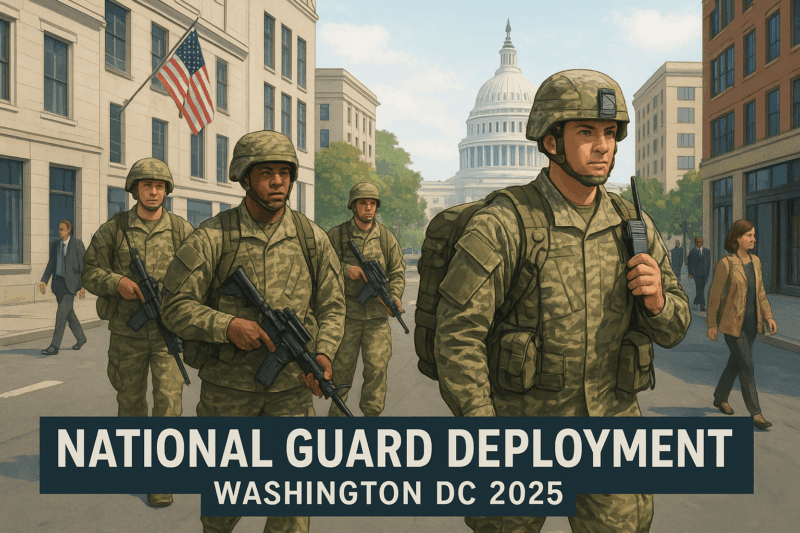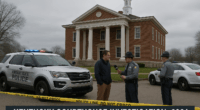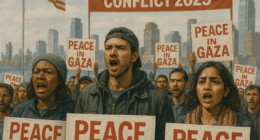A Complex Tale of Crime, Politics, and Federal Intervention
In a striking display of political solidarity, six Republican-led states have committed hundreds of National Guard troops to Washington, D.C., supporting President Donald Trump’s ambitious “crime crackdown” initiative. Yet behind this show of force lies a compelling irony: several of these states harbor cities with crime rates that exceed those of the nation’s capital they’re being sent to secure.
The deployment represents more than just a law enforcement operation—it’s a symbol of how crime statistics, political rhetoric, and federal intervention intersect in America’s ongoing struggle with public safety.
The Human Impact of Crime Across America
Behind every statistic lies a human story. In Memphis, Tennessee, families mourned 249 lives lost to murder and non-negligent manslaughter in 2024—a number that surpassed Washington D.C.’s 187 homicides. In New Orleans, despite a remarkable 25% decrease in overall crime, 124 families still grieved loved ones lost to violence.
These numbers represent real communities grappling with safety concerns, economic hardship, and the daily anxiety of living with crime. Whether in D.C.’s neighborhoods or in the cities of states now sending troops, residents share the universal desire for safety and security in their communities.
Facts and Figures: A Statistical Snapshot
The data reveals a complex crime landscape across America. Washington D.C. recorded 29,348 total reported crimes in 2024, including 3,469 violent crimes and 25,879 property crimes. However, several cities in the troop-contributing states reported higher numbers:
Tennessee’s challenges are stark:
- Memphis: 15,338 violent crimes and 42,305 property crimes
- Nashville: 7,857 violent crimes and 31,521 property crimes
Other contributing states show mixed patterns:
- Columbus, Ohio: 112 murders and 24,290 property crimes
- Cleveland, Ohio: 5,663 violent crimes
- New Orleans, Louisiana: 2,543 crimes against people (down from previous year)
The FBI’s national data shows over 14 million criminal offenses occurred across the country in 2024, though various crimes nationwide decreased compared to previous years.
The Broader Context of Federal Intervention and State Politics
This National Guard deployment occurs within a larger framework of federal-state tensions over crime policy. Trump’s executive order “Making The District of Columbia Safe And Beautiful” represents a significant federal intervention in local governance, raising questions about the balance between federal authority and local autonomy.
The political messaging around the deployment reflects deep-seated concerns about urban crime that extend far beyond D.C.’s borders. Governor Tate Reeves of Mississippi emphasized that “Crime is out of control there,” while Louisiana Governor Jeff Landry spoke of restoring “safety and peace in our nation’s capital.”
This intervention also highlights the ongoing debate about crime reporting accuracy. Trump claimed on Truth Social that “D.C. gave Fake Crime numbers in order to create a false illusion of safety,” while local officials maintain they’ve followed proper procedures.
What Lies Ahead: Governance, Accountability, and Public Safety
The deployment of approximately 800 National Guard members to D.C. raises important questions about the future of federal-local cooperation in crime fighting. Washington D.C. Mayor Muriel Bowser has emphasized compliance with legal requirements while challenging aspects of federal oversight.
Legal challenges are already emerging, with Washington officials suing to block certain aspects of the federal takeover. This legal battle will likely establish precedents for future federal interventions in local crime policy.
The effectiveness of this approach will be measured not just in crime statistics, but in community trust, constitutional balance, and whether such interventions address root causes of crime or merely redistribute security resources.
Conclusion: Navigating Crime, Politics, and Public Safety
As National Guard troops from GOP states take positions in Washington D.C., the nation watches a unique experiment in crime fighting unfold. The irony that some contributing states have higher crime rates than D.C. itself underscores the complex relationship between political rhetoric and statistical reality in America’s approach to public safety.
Whether this deployment succeeds in making D.C. safer—and what it means for federal-state relationships—remains to be seen. What’s certain is that communities across America, from Memphis to D.C., deserve effective, evidence-based approaches to crime that prioritize both safety and constitutional governance.






